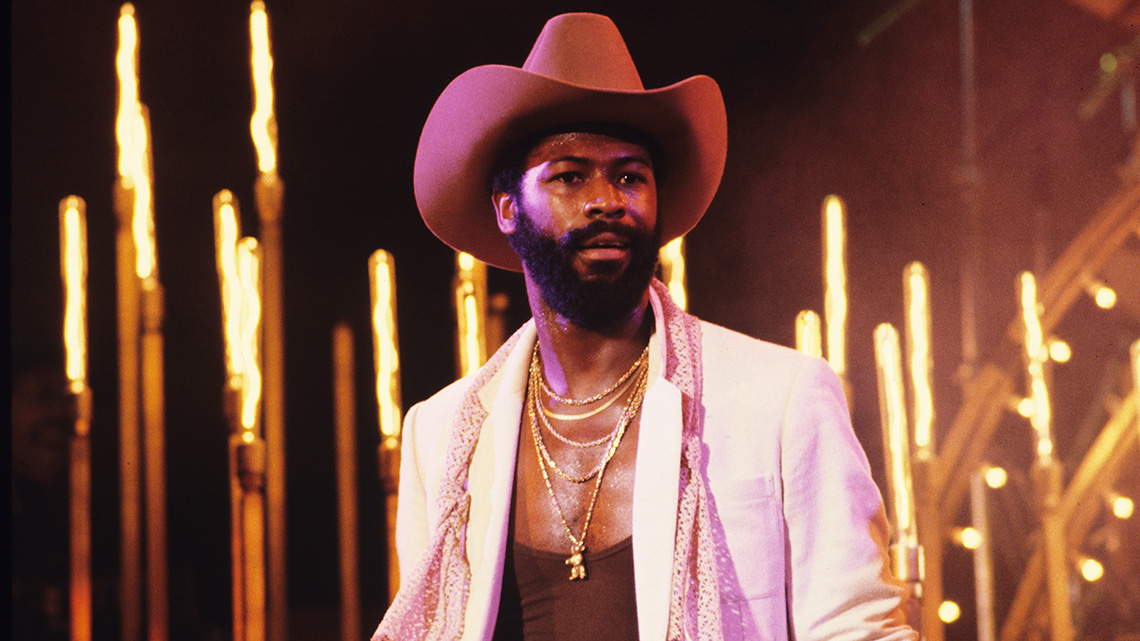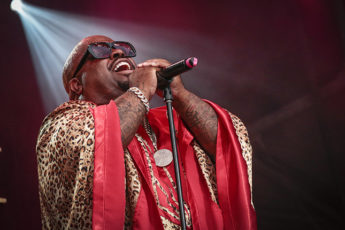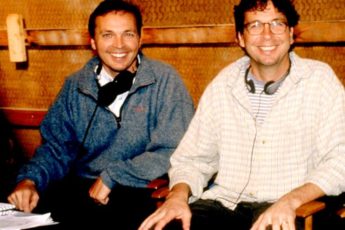
For starters, fuck Harold Melvin. There actually was a Harold Melvin in the Harold Melvin & The Blue Notes band, the founder and very briefly the lead singer when they were unknowns just starting out. But everyone knows it was the incomparable Teddy Pendergrass who put them on the map after joining (originally as the drummer) and made them one of the biggest Soul and R&B acts of the 1970’s, and maybe ever. Forced into the background, Melvin was sour, resentful, manipulative and self-dealing with the band’s finances, and ultimately regained band dominion only after losing his moneymaker – after which they toiled in relative obscurity for decades. Jealous jerk.
With Pendergrass’s roaring, raspy baritone unmistakably leading the way, the band’s first big breakthrough came in 1972 with ‘If You Don’t Know Me By Now,’ bringing them huge mainstream success, and on Teddy’s local label, Philadelphia International Records, quickly established them as The Sound of Philadelphia.¹ That was followed in short order by smash hits ‘The Love I Lost’, ‘Wake Up Everybody’, ‘Bad Luck’, and the original Philly soul version of future disco standard ‘Don’t Leave Me This Way.’² At odds with Melvin over both financial issues and personality conflicts, Pendergrass left Harold Melvin & The Blue Notes at the peak of their success in 1976, and while the band never recovered, Teddy’s fame only grew. Starting with 1977’s eponymous “Teddy Pendergrass” album and it’s statement hit ‘I Don’t Love You Anymore’ – which may or may not have been reflective of his relationship with a certain petty-minded former “bandleader” – the immeasurably talented, handsome and charismatic Pendergrass delivered four consecutive platinum albums (in just four years), a then record-setting feat for an R&B artist. And with his explosive stardom and sex appeal risen to an all-time high he became the leading male R&B artist of his day (surpassing, among others, the popularity of mainstays Marvin Gaye and Barry White) and known in the media as “the black Elvis”³
Of course, Pendergrass’s next chapter was tragic. Losing control of his signature green Rolls Royce near his home in suburban Philadelphia in 1982, he careened into two trees, suffering spinal cord injuries that left him a quadriplegic. Yet, three years later, the wheelchair-bound Pendergrass made his emotional return to the stage, poignantly performing the Diana Ross classic ‘Reach Out and Touch (Somebody’s Hand)’ in front of a live audience of 100,000 and an estimated 1.5 billion television viewers, at the historic Live Aid concert in his very own City of Brotherly Love hometown. I doubt Rocky’s Philly comeback could have been more dramatic, but I bet Harold Melvin didn’t even watch.
Our clip is of the band’s previously cited mid-‘70’s socially conscious and yet still timeless song, ‘Wake Up Everybody.’ Appearing on Soul Train in spectacular matching pale blue tuxedos and ruffled shirts, Pendergrass sits demonstrably up front, does the introduction, and for sure all of the singing. And while Teddy completely carries the band, emoting and belting the tune out with characteristic swagger, the other grateful Blue Notes at least sway amiably in the background…well, except for one. That’s Harold Melvin at the far right (Pendergrass’s left), slumped in his chair, glancing offstage, and noticeably sulking. Seriously, suck it, Harold.
¹Two years later a song called ‘TSOP (The Sound of Philadelphia)’, written and produced by the legendary pair of Kenneth Gamble and Leon Huff for their own Philadelphia International label, became the theme song for the program Soul Train, and was arguably the first disco song to ever reach #1 on the Billboard 100.
²Thelma Houston’s Motown remake just 2 years after in 1977 was a #1 hit on the US Pop chart, and is undeniably one of the defining recordings of the disco era.
³I discovered this and many other incredible bits of the Teddy Pendergrass story in the just-released BBC documentary “If You Don’t Know Me.” Totally worth seeing. And, “Black Elvis”…man, I love that nickname.






Leave a Comment